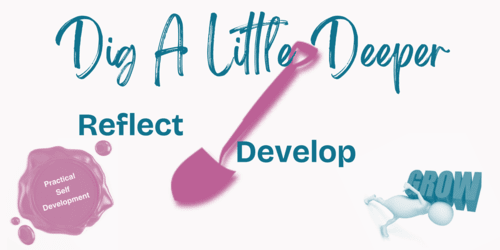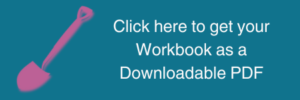What comes to mind when you hear ‘I don’t know’? It can momentarily stop us in our tracks wondering how to move forward. More information is required.
Should we feel comforted by an individual who says ‘I don’t know’? It could have been worse. You may have received the answer, made a decision, acted upon it and found it was wrong.
We’re more careful and deliberate once it’s realised there is a price to pay for delivering inaccurate information. This is why it’s important to make ‘I don’t know’ a call to action for life.
Bad habits
Don’t get into the habit of stopping at ‘I don’t know’. It means go and find out. Go in search of!
If you can’t locate up-to-date information, which in this day and age is highly unusual; reach out to a person you rely on for correct details.
‘I don’t know’ doesn’t exempt you from further follow-up.
- Make it a life commitment to locate current information before sharing.
- Be proud to have your name attached to the facts being supplied.
Customer service
The service industry is where people rely on others to perform duties. It’s also where lots of questions are asked and answered. It’s okay not to have immediate solutions on hand.
A customer asks you a question. There are many ways to answer.
- I don’t know
- I think it could be …
- Oh, I don’t know. If you give me a couple of minutes I will go and find the answer.
- I am not sure; do you mind having a look around while search for the answer?
- I think it could be this but let me go and cross check to make sure I am giving you the right answer.
- At ……. we pride ourselves on sharing accurate information. I have an idea but give me a moment so I can check to ensure I pass on the right information.
The first two responses show no commitment to yourself or the person making the enquiry. This type of attitude makes you unworthy of providing the right way forward and the individual will be better off going to someone else for the answer.
The other replies show integrity, respect for yourself, the customer and the employer.
There is nothing to feel inadequate, foolish or embarrassed about. Get excited by ‘I don’t know’. It’s an opportunity to collect information expanding your knowledge in a particular area.
Generally, managers and supervisors will be able to assist with your enquiry. If they don’t have the answer coming off the top of their heads, they will be able to guide you to the company’s technical specifications, policy and procedure, flow charts and other resources.
The next time someone asks about the same subject you will have the answer on hand. If not, you’ll know where to locate the information. You won’t be worried about the answer as you already know it exists.
Why wouldn’t you go the extra mile if you are being paid? Follow up the required answer, come back and show off your new knowledge. This highlights you are: –
- Customer oriented.
- Good at your job.
- Not afraid to not know.
- Eager to do your job with grit and integrity.
In life and business, seeking knowledge and understanding is crucial. Warren Buffet. Share on X At a grocery store, a customer asks which aisle a product is in. It’s okay not to know where every product is in a supermarket. Go and find out where it is. This makes you look competent. If you don’t know and are not prepared to get an answer, how is the customer meant to purchase the item? Don’t make them have to ask another employee.
At a grocery store, a customer asks which aisle a product is in. It’s okay not to know where every product is in a supermarket. Go and find out where it is. This makes you look competent. If you don’t know and are not prepared to get an answer, how is the customer meant to purchase the item? Don’t make them have to ask another employee.
Customers will be disappointed by being brushed off or told to go to the help desk. It also makes an employer look lazy, incompetent or both.
A customer starts asking questions at a gas and electricity company. The employer says, ‘I don’t know’. What is the customer meant to do with this information?
Being flippant when answering questions does not leave the person on the receiving end convinced. Customers want to see and hear confidence when answers are forthcoming, especially when they are about to make decisions on the information being shared.
A duty of care means delivering accurate information to people. Most government agencies are bound by this. It’s in place to ensure no harm to others is caused. Workers have been demoted or even terminated from their positions for providing inaccurate information.
If you owned a business and were paying people to represent your company in a positive light, would it be appreciated if the employee provided wrong or inaccurate information?
Customers make changes in their plans, routines and lives to accommodate some answers. Make sure they are not making those changes with the wrong information.
Consumers aren’t coming to you with an excuse to have a chat. They are asking you for information because they need an answer. They want to rely on what comes out of your mouth to make decisions. Ask people, research the subject, Google, look for reviews or blueprints. Even AI can become a go-to source when going in search of answers.
Become curious. Even with subject matter you know little about or have no interest. Collecting and sharing accurate information allows you to talk to anyone without having to make up stories or lie to be part of a conversation.
What type of person do you want to be known for?
Are you the individual others rely on or are you one of those people avoided when information is needed?
Holding a reputation as lazy or inattentive will bruise your feelings later on down the track. You will feel offended or hurt once its realised people find you unreliable or inaccurate with information.
This will be the result when you constantly win the ‘I don’t know’ battle without any follow-through.
Case scenario
Jen, Sarah, Fiona and Monica are discussing the new AI products coming onto the market. Jen and Sarah don’t know too much about it but start searching for information on their phones. Monica is an AI enthusiast. However, every time she shares her knowledge, the other three start fact checking.
Monica becomes annoyed. Fiona says, “The last time I took information from you and based my decisions around it, it cost me an extra $200.00. That’s never going to happen again. Like it or lump it pal you did me wrong and I won’t trust a thing that comes out of your mouth again.”
Sarah says, “Monica we enjoy your company but won’t ever trust the information you provide.”
To be taken seriously and be known as the go-to person for accurate information you can’t be careless with the knowledge you share.
Are there valid ‘I don’t know’ areas?
Where is my phone/keys/bag/remote/sports gear?
Will you be able to come to a party next week? ‘I don’t know’ I will have to ask my parents.
How do I get to the train station from here? I don’t know but I will check on Google Maps.
Do you want Fish and chips or chicken? I don’t know. This one makes partners crazy.
Wrapping up
Be prepared to look for answers when you hear yourself say, “I don’t know”. Make it a life commitment to go in search of answers when ‘I don’t know’ comes out of your mouth. We learn and retain a whole lot more when we go and look for replies. Sometimes we forget how we responded but know exactly where to go to find the details we need.
Be the person, other people go to because you have a reputation for being worthy of helping others with accurate information. Not one of those people who can’t be relied upon because they have used ‘I don’t know’ far too often in the past.


